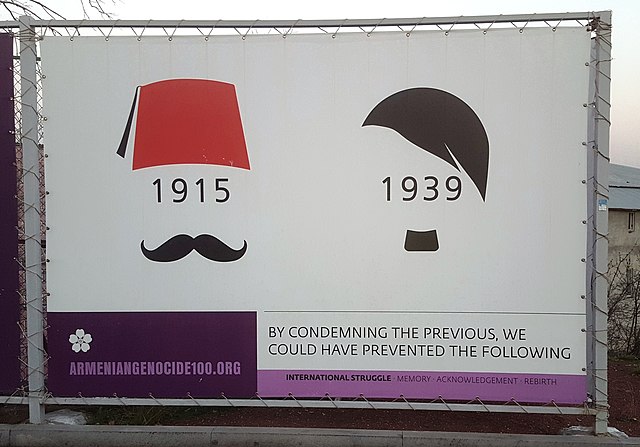The Holocaust and the Nakba
In discussions of the Israeli–Palestinian conflict, the Holocaust and the Nakba have come to be regarded as interrelated events, both historically and in the way these two tragedies have influenced perceptions of the conflict by both parties. In Israel, all Israeli Jews are considered survivors of the Holocaust who must implement the imperative of never again in regards to being a Jewish victim. The uniqueness of the Holocaust is emphasized and any linkage between the Holocaust and the Nakba is rejected. The 2018 book The Holocaust and the Nakba argues that "unless we can hold these two moments in our hearts and minds as part of the same story, there can be no moving forward in the seemingly unmovable conflict that is Israel-Palestine".
Warsaw Ghetto boy, which has been used in comparisons between the Holocaust and the Israeli–Palestinian conflict
Armenian genocide and the Holocaust
The relationship between the Armenian genocide and the Holocaust has been discussed by scholars. The majority of scholars believe that there is a direct causal relationship between the Armenian genocide and the Holocaust, however, some of them do not believe that there is a direct causal relationship between the two genocides.
Poster in Yerevan put up during the commemoration of the 100th anniversary of the Armenian genocide in 2015, arguing that the Holocaust could have been prevented by condemnation of the Armenian genocide.
Alfred Rosenberg, the main theorist of Nazism, who defended Taalat Pasha and the Armenian genocide in a press article
Max Erwin von Scheubner-Richter, a close friend of Adolf Hitler who was also the German vice-consul of Erzurum at the time of the Armenian genocide
In 2006, a memorial commemorating the Armenian genocide and the Holocaust was erected in Yerevan, Armenia.





